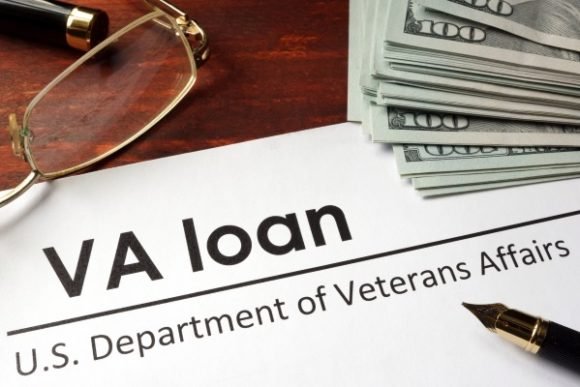Table of Contents
ToggleProperty Loans : Investing in real estate can be a smart way to build wealth over time. An investment property loan is a type of loan that helps you purchase a property specifically for investment purposes. These loans are different from traditional home mortgages because they are designed to help investors buy properties like rental homes, commercial spaces, or fixer-uppers for profit. Investment property loans are usually associated with higher interest rates and more stringent requirements than primary residence loans. However, they offer unique benefits that can help you grow your wealth.
Here’s How Investment Property Loans Can Assist You:
- Initial Capital: Most people don’t have enough savings to buy an investment property outright. Investment property loans provide the necessary capital to make the purchase. This means you can enter the real estate market without a massive savings account.
- Leverage: One of the main advantages of investment property loans is leverage. You can use a relatively small amount of your own money as a down payment and borrow the rest. This allows you to control a more valuable asset and potentially increase your returns.

- Rental Income: Investment properties can generate rental income, which can help you cover the loan payments and even provide a source of passive income. This rental income can make your investment self-sustaining and create cash flow.
- Appreciation: Real estate tends to appreciate over time. As the property’s value goes up, your net worth increases. Investment property loans allow you to benefit from this appreciation even if you couldn’t afford to purchase the property outright.
- Tax Benefits: There are several tax advantages associated with real estate investments, including deductions for mortgage interest, property taxes, and depreciation. These tax benefits can reduce your overall tax liability.
Types Of Investment Property Loans
There are various types of investment property loans available, each with its own features and requirements. Here are some of the most common options:
- Conventional Loans: These are traditional mortgage loans offered by banks and lending institutions. They typically require a down payment of at least 15-20%, good credit, and a stable income. Conventional loans usually offer competitive interest rates.
- FHA Loans: The Federal Housing Administration (FHA) offers loans with lower down payment requirements, often as low as 3.5%. These loans are accessible to a broader range of borrowers but may come with stricter property requirements.
- VA Loans: If you’re a qualified veteran or an active-duty service member, the U.S. Department of Veterans Affairs (VA) offers loans with favorable terms, such as no down payment and competitive interest rates. VA loans can be used for investment properties in some cases.

- Hard Money Loans: These are short-term loans provided by private lenders or individuals. They are easier to qualify for but come with much higher interest rates and shorter repayment terms. Hard money loans are often used by real estate investors for quick, short-term projects.
- Home Equity Loans: If you already own a home, you can use a home equity loan or line of credit to fund your investment property purchase. This allows you to tap into the equity you’ve built in your primary residence.
How Investment Property Loans Work
Here’s a step-by-step breakdown of how investment property loans work:
- Preparation: Before applying for a loan, it’s essential to do your homework. You need to have a clear investment strategy, a budget, and a property in mind. Lenders will want to know how you plan to use the property and assess its potential for generating income.
- Application: When you’re ready, you’ll submit a loan application to a lender. This application will include your financial information, credit history, and details about the property you want to purchase.
- Loan Approval: The lender will review your application and assess your creditworthiness and financial stability. They may also appraise the property to determine its value. If you meet their criteria, they’ll approve your loan.
- Down Payment: You’ll need to provide a down payment, which is a percentage of the property’s purchase price. The exact amount varies depending on the type of loan and lender, but it’s typically between 15% and 20% for conventional loans.
- Loan Terms: Investment property loans have specific terms and conditions, including interest rates, repayment schedules, and loan durations. Make sure you understand these terms and choose the one that fits your financial situation and investment strategy.

- Purchasing The Property: Once your loan is approved, you can complete the purchase of your investment property. The loan proceeds will cover the property’s cost.
- Managing The Investment: With the property in your possession, you can start managing it according to your investment strategy. This may involve finding tenants, renovating the property, and handling property maintenance.
- Loan Repayment: You’ll make regular loan payments as agreed with the lender. If the property generates rental income, this income can help cover your loan payments and other expenses.
- Growing Wealth: As your investment property appreciates in value and generates income, you’ll be on your way to building wealth through real estate.
Tips For Success With Investment Property Loans
To make the most of investment property loans and ensure your real estate investment venture is successful, consider these tips:
- Diversify Your Portfolio: Don’t put all your eggs in one basket. Consider investing in different types of properties and in various locations to spread your risk.
- Research The Market: Stay informed about the real estate market in your chosen area. Understanding market trends, property values, and rental rates is essential for making informed investment decisions.
- Budget Wisely: Calculate all your costs, including property maintenance, property management fees, and loan payments. Make sure your rental income covers these expenses and leaves you with a profit.

- Build A Reliable Team: Having a network of professionals, such as real estate agents, property managers, and contractors, can make managing your investment property much more manageable.
- Plan For The Long Term: Real estate investment is a long-term strategy. Be patient and don’t expect instant results. As properties appreciate over time, your wealth will grow steadily.
- Monitor Your Credit: Maintaining good credit is crucial for securing favorable loan terms. Pay your bills on time and avoid taking on too much debt.
Conclusion
Investment property loans can be a valuable tool for individuals looking to enter the world of real estate investing. They provide access to capital, offer the potential for rental income and property appreciation, and come with tax advantages. By understanding the different types of loans available and following sound investment principles, you can use these loans to your advantage and start building wealth through real estate.
Remember that success in real estate investment requires careful planning, research, and a long-term perspective. So, take the time to educate yourself and make informed decisions as you embark on your investment journey.
Also Refer : How To Secure Mortgage Loan Approval With Confidence
FAQs
What is an investment property loan, and how can it help me as an investor?
An investment property loan is a type of mortgage specifically designed for purchasing rental properties or real estate investments. It can help investors by providing the necessary funds to acquire income-generating properties.
What are the key benefits of using an investment property loan?
Investment property loans offer benefits such as leverage, potential tax advantages, and the ability to diversify your investment portfolio. They allow you to use borrowed money to amplify your real estate investment potential.
Are investment property loans only for experienced investors, or can beginners use them too?
Investment property loans are accessible to both experienced and novice investors. Lenders offer various loan options tailored to different experience levels, making it possible for beginners to enter the real estate market.
What are the typical eligibility requirements for securing an investment property loan?
Eligibility criteria often include a good credit score, a down payment (usually 20-25% of the property’s purchase price), and a steady income. Lenders may also assess the property’s potential rental income.
How can I choose the right investment property loan for my needs?
To select the best loan, consider factors such as interest rates, loan terms, and your long-term investment goals. It’s advisable to compare offers from multiple lenders and consult with financial experts to make an informed decision.
Source Image : Freepik.com
